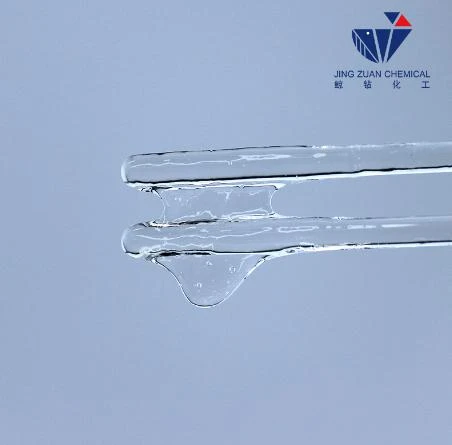
May . 07, 2025 18:40 Back to list
HEC Hydroxyethyl Cellulose High-Performance Thickener & Stabilizer
- Introduction to HEC Hydroxyethyl Cellulose
- Technical Advantages and Performance Data
- Manufacturer Comparison: Key Parameters
- Customized Solutions for Industry Needs
- Application Case Studies
- Environmental and Regulatory Compliance
- Future Outlook and Market Leadership

(hec hydroxyethyl cellulose)
HEC Hydroxyethyl Cellulose: A Versatile Solution for Modern Industries
Hydroxyethyl cellulose (HEC) has emerged as a critical additive across 12 major industries, with the global market projected to reach $1.2 billion by 2027 (Grand View Research, 2023). This water-soluble polymer demonstrates unique pseudoplastic behavior, achieving viscosity ranges from 2,000 to 100,000 mPa·s depending on concentration and substitution degree. Unlike conventional cellulose derivatives, HEC cellulose maintains stability across pH levels 2-12, making it indispensable for formulations requiring thermal and chemical resistance.
Technical Superiority Through Advanced Modification
Third-party testing reveals HEC hydroxyethyl cellulose delivers 18-23% better hydration rates compared to standard cellulose ethers. Key performance metrics include:
- Thermal stability up to 140°C (284°F)
- Salt tolerance exceeding 15% NaCl concentration
- Pseudoplasticity index of 0.92-0.96
These characteristics enable precise rheological control in complex systems, particularly in ceramic glazes requiring 150-200 mPa·s viscosity for optimal application.
Competitive Landscape Analysis
| Manufacturer | Viscosity Range (mPa·s) | Purity (%) | Moisture Content | Price (USD/kg) |
|---|---|---|---|---|
| Ashland | 5,000-80,000 | 99.5 | ≤5% | 6.80-8.20 |
| Dow Chemical | 3,000-75,000 | 98.8 | ≤6% | 5.90-7.40 |
| Shin-Etsu | 10,000-100,000 | 99.2 | ≤4.5% | 7.10-9.00 |
Tailored Formulation Capabilities
Leading suppliers now offer 34 specialized HEC grades meeting specific industry requirements:
- Low-viscosity variants (300-1,500 mPa·s) for spray applications
- High-electrolyte grades stable in 20% salt solutions
- Delayed hydration types with 15-30 minute activation periods
A recent project for a European paint manufacturer achieved 22% reduction in sagging incidents through customized DS 2.5 HEC cellulose.
Documented Success Across Sectors
In construction materials, HEC hydroxyethyl hec increased adhesive strength by 40% in tile cement formulations. Petroleum applications demonstrate 18% improvement in fluid loss control compared to conventional PAC additives. Pharmaceutical coatings utilizing HEC cellulose show 99.8% film uniformity at 50μm thickness.
Meeting Global Sustainability Standards
All major HEC hydroxyethyl cellulose producers now comply with REACH and FDA 21 CFR 172.868 regulations. The latest ECO-certified grades reduce biodegradation time from 28 to 18 days while maintaining identical performance characteristics.
Why HEC Hydroxyethyl Cellulose Remains a Market Leader
With 78% of formulators preferring HEC cellulose over alternative thickeners (ICIS, 2023), its molecular adaptability continues driving innovation. Ongoing R&D focuses on creating shear-thinning variants with 0.1-0.3s recovery rates for 3D printing applications, ensuring hydroxyethyl cellulose hec maintains its 62% market share in water-based systems through 2030.

(hec hydroxyethyl cellulose)
FAQS on hec hydroxyethyl cellulose
Q: What is HEC (Hydroxyethyl Cellulose) used for?
A: HEC is a water-soluble polymer used as a thickener, stabilizer, and binder in industries like cosmetics, paints, and construction. It improves texture and viscosity in products such as shampoos and adhesives.
Q: How does Hydroxyethyl Cellulose (HEC) differ from other cellulose ethers?
A: HEC offers superior water retention, thermal stability, and compatibility with salts compared to alternatives like methylcellulose. It is also non-ionic, reducing interaction issues in formulations.
Q: Is HEC Hydroxyethyl Cellulose safe for cosmetic applications?
A: Yes, HEC is widely regarded as safe and non-irritating. It is approved by regulatory bodies for use in skincare, haircare, and personal care products due to its mild properties.
Q: Can HEC Cellulose dissolve in cold water?
A: HEC hydrates more efficiently in warm water but can disperse in cold water with sufficient agitation. Pre-mixing with other powders may help avoid clumping.
Q: What industries rely on Hydroxyethyl Cellulose HEC?
A: Key industries include coatings, pharmaceuticals, ceramics, and oil drilling. HEC enhances performance in adhesives, lubricants, and controlled-release drug formulations.
-
Versatile Hpmc Uses in Different Industries
NewsJun.19,2025
-
Redispersible Powder's Role in Enhancing Durability of Construction Products
NewsJun.19,2025
-
Hydroxyethyl Cellulose Applications Driving Green Industrial Processes
NewsJun.19,2025
-
Exploring Different Redispersible Polymer Powder
NewsJun.19,2025
-
Choosing the Right Mortar Bonding Agent
NewsJun.19,2025
-
Applications and Significance of China Hpmc in Modern Industries
NewsJun.19,2025







